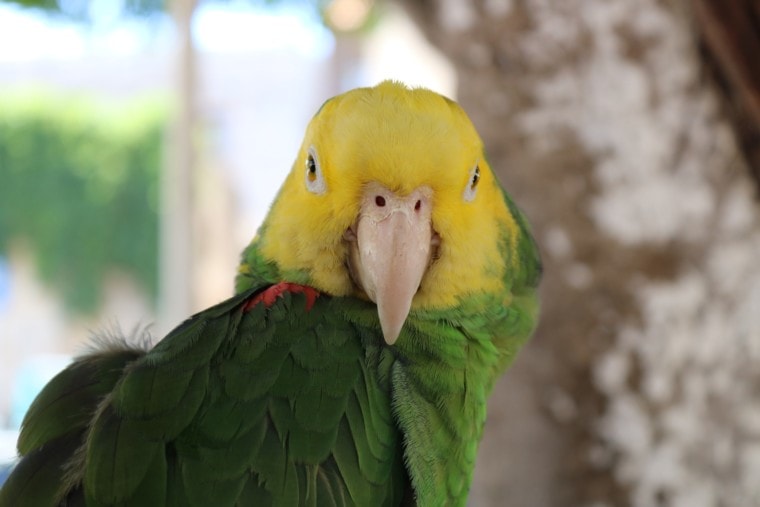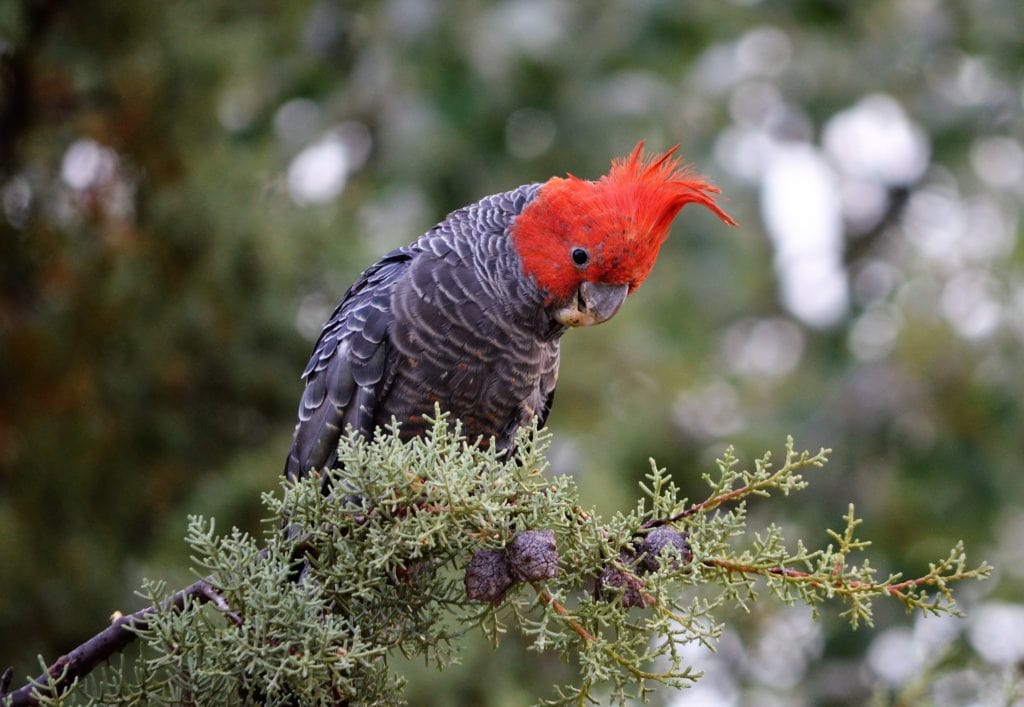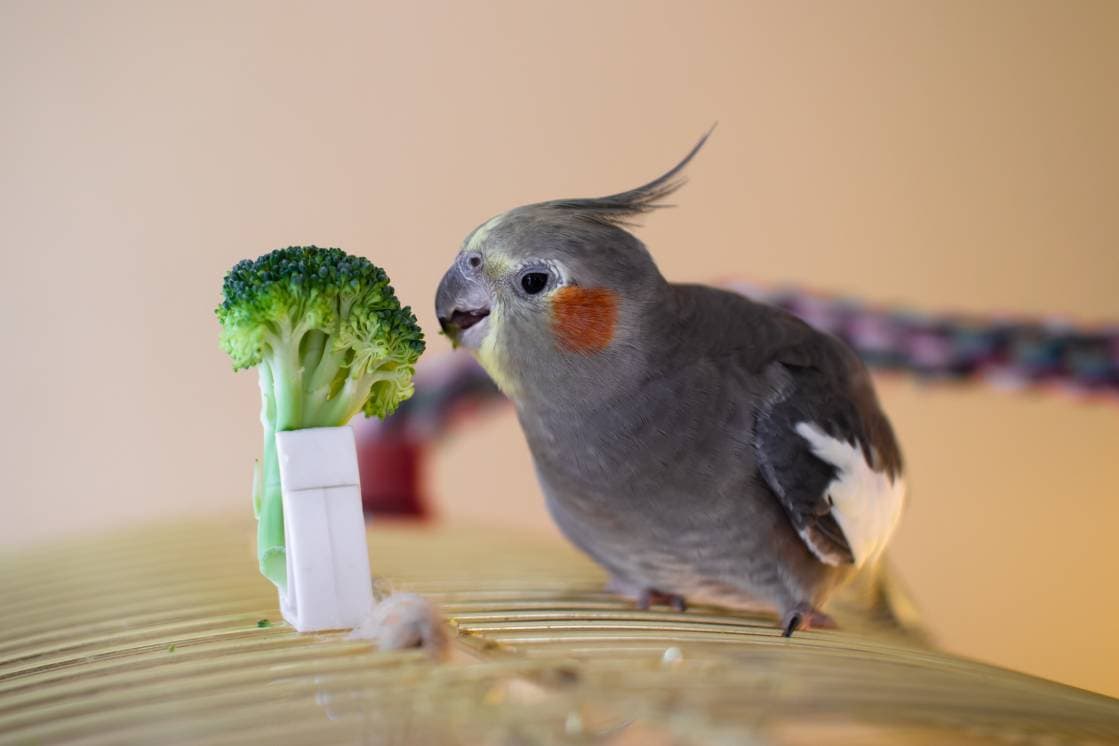
Birds come in all shapes, sizes, and colors, making them one of the most varied groups of domestic pets. Birds can be quite the handful, so they aren’t for everyone, but people who own birds adore their birds, even with the mess and noise. If you think you know all there is to know about pet birds, keep reading to see if you learn something new!
The 27 Facts About Pet Birds
Bird Stats and Info
1. There are thousands of bird species.
There are believed to be 18,000–20,000 or more bird species in the world! There are over a dozen families of birds that are kept as pets, and there are up to a few dozen species in each family.
2. There are millions of pet birds in the US.
As of 2020, 9.9 million households in the United States own birds.
3. There are two pet birds categories.
Pet birds are often broken down into two categories: parrots and non-parrots.
4. There are two types of domesticated birds.
The only types of birds that are considered to be truly domesticated are parakeets and cockatiels. All other types of pet birds are, in essence, wild animals.
5. Birds are direct descendants of dinosaurs.
Approximately 65 million years ago, all but one group of dinosaurs went extinct. The remaining group of dinosaurs became the birds we know and love today. However, birds began to develop around 150 million years ago.
6. Birds can be very cheap or very expensive.
You can get a pet bird for as little as $10 for small birds like Parakeets, or as much as $5,000+ for large, exotic birds, like some types of macaws.

Lifespan
7. Which was the oldest bird?
The oldest known bird according to Guinness World Records was a cockatoo named Cookie who lived to 82 years and 89 days. Cookie lived until August 27, 2016.
8. Parrots live very long.
It’s not uncommon for some species of parrots to live upwards of 40–50 years, often outliving their owners.
9. Pet birds are a long-term commitment.
Most species of pet birds live to be at least 10 years old with proper care, making birds a multi-year commitment no matter the species.

Bird Behavior & Body Language
10. Cockatoos dance!
Cockatoos are known for their dancing antics. Interestingly, studies have shown these birds make deliberate movements that they adjust with changes in tempo and rhythm. Other than humans, they’re the only animals that have shown these abilities. Not even primates have shown these abilities!
11. Birds like music.
Many types of birds can be taught to appreciate music by playing enjoyable music when they are in a good mood or when they are having a pleasant experience, like playing with an interesting toy or trying a new treat. This can help them associate music with pleasant things and improve their mood.
12. Birds offer regurgitated food to their loved ones.
Some birds are known to regurgitate undigested or partially digested foods to feed their young. Some parakeets have shown this behavior when interacting with their humans, showing affection through offering a tasty, regurgitated meal.
13. Birds’ eyes can tell you a lot.
Keep an eye on your bird’s eyes. Large, dilated pupils can indicate your bird is relaxed or content. However, small, pinprick pupils can indicate your bird is agitated and is likely to bite.
14. Birds grind their beak to show happiness.
If your bird is grinding or clicking its beak, it’s likely telling you that it’s happy or pleased with something it has been offered, like food or a toy.
15. Raised crest also means happiness.
Crested birds, like Cockatoos, will raise the crest on top of their head to show you they’re happy to see you.
16. Birds like routine.
Birds thrive with a routine. Changes or interruptions to their routine can lead to stress and behavioral problems.
17. Roosters could be used as an alarm clock.
Some types of birds are so set in their routines that they may be as reliable as an alarm clock, a la roosters. This is one of the reasons that roosters aren’t able to be owned in some municipalities.

Health Information
18. Birds are sensitive to chemicals.
Many domestic birds are extremely sensitive to certain types of chemicals in the air. These can include artificial room fresheners, cleaning supplies, and even the fumes emitted from Teflon-coated cookware, which humans can’t typically smell.
19. Birds need regular vet checks.
Just like dogs and cats, birds need routine veterinary visits. These visits can be for nail, wing, or beak trims, or they can be general health checkups to make sure no illnesses are developing.
20. What is “Parrot Fever”?
Psittacosis is a bacterial disease that impacts over 400 species of birds. It is also called “Parrot Fever”, and it is highly transmissible between birds. It can even be spread through humans who have had contact with an infected bird or objects belonging to that bird, like feathers and bedding. It can be deadly, but it is treatable.
21. Humans can contract Parrot Fever
Psittacosis is a zoonotic disease, meaning it is transmissible to humans, and it can cause a mild to severe lung infection.

Intelligence
22. Birds are highly intelligent.
Birds are typically highly intelligent animals. They are also sensitive and experience a broad range of emotions, with some birds, like the African grey parrot, exhibiting the same mental, emotional, and problem-solving capacity of a human child around the age of 4–6 years.
23. Birds are able to mimic voices.
Many birds are capable of mimicry, with some being able to mimic human voices. Some of the most intelligent parrots can learn a library of words and phrases, with some developing a vocabulary of over 1,000 words and phrases.
24. Some birds can learn to “speak”.
Mimicry involves mimicking sounds in the bird’s environment through repetition and practice. This behavior may be done for entertainment or to illicit a response. African greys have shown the ability to not only learn human words, but they can use words and phrases in the proper context to allow for verbal communication, which is taking their use of language beyond mimicry.
25. Some birds are smarter than others.
In some parrots, studies have found the spiriform nucleus to be two to five times larger than that of a chicken. The spiriform nucleus allows for communication between the brain’s cortex and cerebellum, allowing for advanced behaviors and intelligence. In some parrots, the spiriform nucleus is the same size in relation to the brain as it is for primates.
26. Macaws can use tools.
Macaws have shown advanced abilities and communication techniques, including the use of tools, the ability to solve puzzles, and even exhibiting face blushing in communication.
27. Birds are aware of permanence of objects.
Some advanced birds have the concept of object permanence, which means they know that an object is still present when it is out of sight, like if you hide an object in your pocket or remove a toy from the room. In humans, this ability isn’t usually developed until around 2 years of age.

 In Conclusion
In Conclusion
Birds are easily one of the most interesting animals we keep as pets. They never cease to amaze us with their intelligent behaviors and interesting antics. They are also wonderful pets if you’re interested in a pet that loves you back, but you’re looking for something a little different than the typical dog or cat. Pet birds are a commitment of time, both daily and for multiple years, but they are worth the effort and will pay you back with their affection.
You may also want to know:
Featured Image Credit: klarunddeutlichmedia, PIxabay









